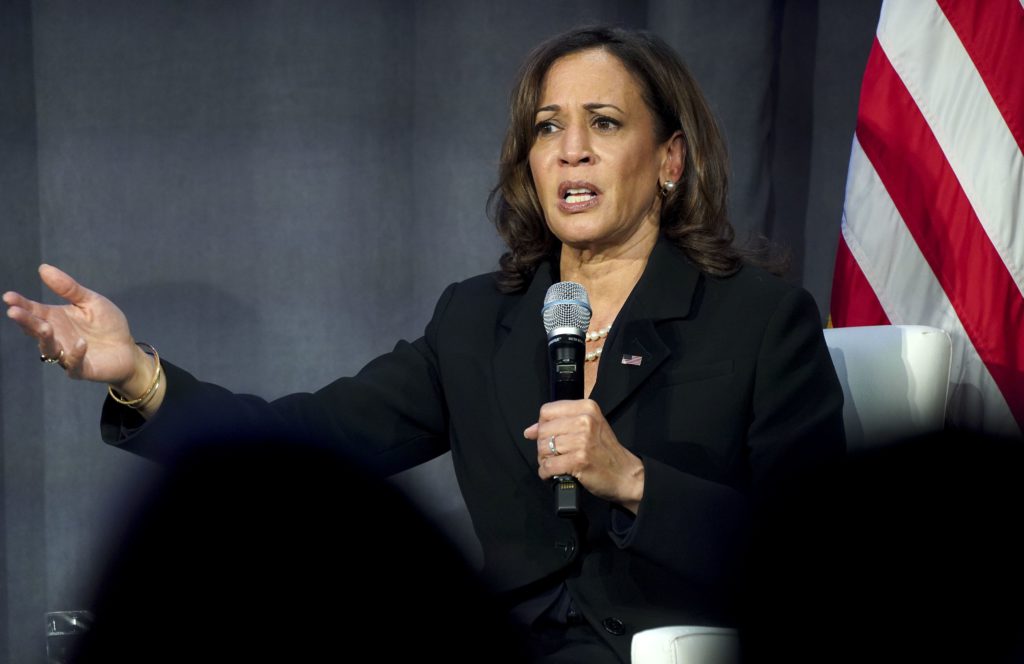Vice President Kamala Harris tried to persuade Asian nations that the US is their most valuable economic partner in a speech in Bangkok on Friday, with the Biden administration wary of China’s inroads in the region.
(Bloomberg) — Vice President Kamala Harris tried to persuade Asian nations that the US is their most valuable economic partner in a speech in Bangkok on Friday, with the Biden administration wary of China’s inroads in the region.
Harris sought to allay doubts about the US commitment to the region among its leaders, after a turbulent period that saw former President Barack Obama advance a major Asia trade pact only for his successor, former President Donald Trump, to scrap it. President Joe Biden has proposed a watered-down replacement.
The vice president argued that US fidelity shouldn’t be measured only by the nation’s trade policies.
“The United States has an enduring economic commitment to the Indo-Pacific, one that is measured not in years, but in decades and generations,” Harris told business executives on the sidelines of the Asia-Pacific Economic Cooperation summit.
“And there is no better economic partner for this region than the United States of America,” she said.
With the US out of the 11-nation TPP — now known as the Comprehensive and Progressive Agreement for Trans-Pacific Partnership — China has secured the passage of a rival trade pact. Biden has proposed an arrangement called the Indo-Pacific Economic Framework, which would be less binding than the CPTPP and doesn’t include tariff reductions.
During his own visit to the region this week, Biden cautioned Cambodia’s leaders against allowing China to establish a military base in their country. Earlier this year, the US found itself trying to stave off a similar arrangement between China and the Solomon Islands.
On Thursday, Chinese President Xi Jinping offered a competing vision for developing the Asia-Pacific region’s economy and security. “The Asia-Pacific is no one’s backyard and should not become an arena for big power contest,” Xi said in written remarks to the APEC CEO Summit.
While many in Asia are wary about China’s growing military might and economic influence, they’re reluctant to openly line up with the US against a key trading partner. The Biden administration’s efforts to cut off China’s access to vital technology, such as semiconductors, have been met with resistance from allies and partners.
The White House believes Harris’s speech is important because many countries and businesses in the Asia-Pacific region worry the US lacks an agenda, one US official told reporters on condition of anonymity to preview her remarks. Many regional countries have pressed for the US to join the CPTPP or, in its absence, deepen economic engagement with them. China, in the meantime, has applied to join the CPTPP.
“We stand against market distortions and unfair competitive advantages,” Harris said. “And we prioritize inclusivity.”
US Trade Representative Katherine Tai is also at the APEC summit seeking to advance talks on Biden’s proposed framework.
“As a strong partner to the economies and companies of the Indo-Pacific, America’s approach to these relationships is based on collaboration, sustainability, transparency and fairness,” Harris said. “Through all of our efforts, we will continue to uphold and to strengthen international economic rules and norms that protect a free market and create predictability and stability.”
In meetings with other leaders at APEC on Friday morning, Harris was expected to criticize Russia directly for its invasion of Ukraine and urge other nations to do the same, according to the official. Both Russia and China are part of APEC.
The US will host the group’s leaders next year. The White House hasn’t yet announced which city will be the summit site.
–With assistance from Meghashyam Mali.
(Updates with delivered quotes)
More stories like this are available on bloomberg.com
©2022 Bloomberg L.P.











